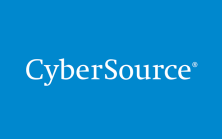Occupational Fraud: Protect your Business from the Enemies Within!

June 20, 2014 – Jeff Yelton
When times are tough and the economy is struggling to regain its footing, many businesses and individuals find themselves under intense financial and emotional pressure. Salaries are being reduced, lay-offs are rampant, house values are falling, and their financial safety net has unraveled. Morale is down and fear is up. Survival instincts kick in and good people do bad things. It's a fact of life and, because of this, all businesses are susceptible to a fraudulent attack.
The Association of Certified Fraud Examiners (ACFE) surveyed its members and found a 49% increase in the dollar amount of frauds in the latest economic down turn. Sadly, employee embezzlement or occupational fraud was the number one category of fraud in the survey.
Fraud refers to an act committed by a person with the intent of deceiving another person/entity and taking unjust or illegal advantage of it. Occupational fraud refers to such deceptive acts committed by present or potential employees against their employers.
There are generally three factors that need to be present for fraud to occur: pressure, opportunity, and the ability to rationalize illegal behavior. Unfortunately, the presence of each of these factors may increase in periods of economic hardship.
There are many different types of deceptive acts (fraud) committed by employees, including:
- Misappropriation of funds
- Theft of cash and checks
- Theft of goods
- Inflation of expense claims
- Creation of ghost employees and inflation of expenses
- Forging a signature on a check and other documents
- False document creation
- Misuse of petty cash
- Use of office assets for personal purposes
- Overriding of the company policies and decisions
- Withdrawal of money from customers' accounts
- Creation of ghost vendors
- False information on an employee resume
- Leaking confidential information about the business to third parties in return for money or money's worth
- Sale of a firm's goods or assets without the authority
Are you sure that your business is protected from these types of frauds?
If your answer is "no," "don't know," "not sure" or "can't say," then it would mean that you are among many business owners who are unaware of the financial control measures that help shield businesses against such types of fraud. Comparatively, small businesses tend to fall prey to this act, due to a lack of effective control measures. Financial control measures are usually given low priority by small business owners, as they do not realize the need and importance of these measures until it is too late.
Financial control refers to the techniques implemented by a business to ensure that every financial transaction is recorded and maintained accurately and is not tampered with - intentionally or unintentionally. It refers to the policies and procedures established by an organization regarding documenting, reporting, and managing financial transactions.
Examples of financial control measures include:
1. Strong Internal Control System: Refers to the various systematic procedures and methods set up by a firm to carry out its business in an orderly and efficient manner.
2. Effective Accounting System: Consists of the methods and records established to identify, assemble, analyze, classify, record and report an entity's transactions, and to maintain accountability of the related assets and liabilities.
3. Regular and irregular audits.
4. Creation and communication of a written and transparent "Fraud Policy" for your firm that describes the term "fraud," the company's zero tolerance level against fraud, and the investigation processes and consequences of fraud, etc.
5. Creation of a positive work environment for your employees.
6. Hiring honest people by conducting a thorough background check.
Theft usually starts with petty cash, a small amount. So, it would be advisable to be cautious and aware of the environment in your business. You may need to watch out for warning signals, such as noticeable employee behavioral changes, personal financial problems, obvious usage of drugs or alcohol, etc.
More than one-third of surveyed organizations have had some controls eliminated as a consequence of staff reductions during the economic down turn. Paradoxically, it is these organizations that most likely need anti-fraud controls. After layoffs, morale is usually at a low point, workload is often increased; the pressure to perform can be unbearable and lead to the perfect storm for fraud.
Oftentimes, fraud is committed by your most loyal and trusted employees. Controls are for everyone, family included.
Embezzlement (of funds by employees) has been the number one financial crime over the past few decades, so much so, that almost one-third of all company bankruptcies can be attributed to embezzlement. The cost of fraud is estimated at $6 billion in the US alone! It is therefore imperative to protect your business from the enemies within! Ultimately, what you would be guarding is not a few thousand dollars, but your business, the effort it took you to bring it to the present stage and the dreams associated with it! Remain vigilant. Be proactive.
Jeff Yelton is a technology industry veteran with over 32 years of experience with manufacturer, reseller, ISV (Independent Software Vendor) and distributors in the IT Channel. His background includes sales, sales management, systems integration management, business development, merchandising management, Divisional President and CEO - as well as an accomplished entrepreneur.
Currently, Jeff is serving as President of Wired Fox Technologies. Wired Fox Technologies is an Independent Software Vendor (ISV) providing identification management software, access control, video Analytics, barcoding and mobile communications to airports, colleges, retailers and other Fortune 500 companies. Prior to Wired Fox Technologies, Jeff held positions as President of ScanSource AIDC/POS, Executive Vice President and CEO of Retalix North America, as well as various roles with IBM Corporation, and Kyrus Corporation. Jeff is a graduate of the University of North Carolina at Chapel Hill and currently resides in Greenville, SC.
Wired Fox Technologies is a software company that provides identification management software to the aviation, collegiate and Fortune 500 companies. 30 years of experience have taught us many lessons on how to run a business. We hope you can learn from our mistakes. Please visit us at https://www.wiredfoxtech.com
Article Source: https://EzineArticles.com/?expert=Jeff_Yelton






